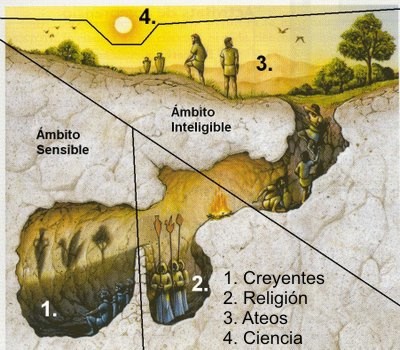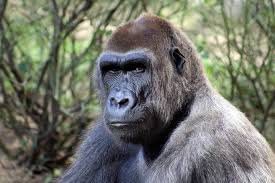A few weeks ago, I attended my first self-help seminar. I resisted the invite but a good friend insisted that if I went in with an open-mind, I was bound to learn something. I told him that with an open-mind, you’re bound to learn something no matter where you are. He said there was a money-back guarantee. He said that if nothing else, he was very interested to see how someone like me to would behave in an environment like that. I agreed.
I went to PSI Seminars: Basic which was a 3 day seminar with about 70 other people at a middle-tier hotel in the burbs. The group was diverse but seemed to be weighted more towards newer immigrants and the middle-class. I also noticed that while many came in with a healthy dose of skepticism, they also came looking for help in facing their own personal challenges.
The curriculum introduced several valuable concepts like game theory, personality science, and why it helps to stray from your comfort zone. It also included classics like the law of attraction and self-love. The 3 days were largely a mix of lectures, group exercises, and personal exercises. There was a lot of clapping.
When I wrapped up the weekend, I asked for my money back. It just wasn’t for me. I think that when you ask for your money back, they follow up to try and figure out why. They sent my group’s ‘micro-leader’, a 20-something nice kid who I got along well with. In our conversation, he asked me what I learned at the seminar. I told him that I learned many things, but perhaps most significant, I learned a great deal about religion. I don’t think that’s the answer he was expecting.
I grew up without religion. Both my parents went to church when they were young but they had fallen out of it by the time they had children of their own. My earliest understanding of religion was that it was unnecessary. It was easy to see that you could be a good person without religion, and that you could be a bad person with religion. I also knew that many religious teachings hadn’t aged well, leaving their supporters with out-dated values. More than anything, it seemed like religion was holding back the natural progression of morality.
As I got older, I became more spiritual and started focusing more on the intangibles of the universe which connect us all. On that journey, I started noticing that much of what I was discovering for myself already existed in religious texts. These epiphanies of mine weren’t new ideas, they were ancient ideas. They were ideas that resonated so strongly with their audience, that people built entire organizations around these ideas. This was the root of religion. Things started to make more sense. Where I once resisted religion, I was now in a place where I could understand it.
When I was younger, I came up with an idea: The Church of Good. I think this is the first time I’ve ever typed that out because I just saw the play on words. Anyways… the church of good was simply a church without religion. This would be a place where people would come to hear the inspiring stories of what real people have done to make the world a better place. It would be a place where we could learn the ideas and practices which would help us be better to one another. It would also be a place were people could find community among others who were motivated to be good people. It was supposed to be the best of religion without the worst.
That idea has sat in the back of my mind for over a decade now. For most of that time, I saw religion as toxic. But then I kept meeting people whom I admired in many ways, who also happened to be religious. How could I admire someone who lived their life according to something which I considered to be toxic? There was a disconnect. The people I admired were good, decent people. They generous when they didn’t have much, they were kind to those who weren’t kind to them, and they seemed to be more motivated by a collective good than by personal gain. Most of them looked at the organized side of religion as a formality, traditions within their tribe. For many of them, it was the least interesting part. What they all seemed to have in common though, was an appreciation for the greater good and and enjoying being part of a community that prioritized it.
For the longest time, I couldn’t understand why religion had such popularity and staying power in the face of such obvious flaws. Why couldn’t people see that they were being lied to? And manipulated? And often, for the sake of those who clearly weren’t operating in the spirit of the teachings. But then it clicked, they were learning things at church that they weren’t learning anywhere else – Important things.
When I was fired from the bank, I was forced to leave a career I had put my everything into. My world came crashing down and I experienced suffering. That experience offered me lessons about myself and my journey that would’ve been very challenging to grasp otherwise. I became a much stronger and more capable person because of it. The last time something happened like that, it was my dad who died. I noticed a pattern: that my greatest moments of growth followed my greatest moments of suffering. With that understanding, my perspective on suffering changed. Suffering was no longer to be feared or avoided, but understood, appreciated, and embraced. I mentioned this to a friend and he told me that this was a classic Buddhist teaching. Well then.
If we were to look at all the lessons learned from all the religions, I suspect we would find patterns of morality and purpose. I’m not saying that everything we’d find is something which should be taught today. What I am saying that we would find a pattern of people trying to understand how to be better to one another and a pattern of people trying to understand their place within the universe. I can’t help but think that this is the true value of religion… an opportunity to learn about the more philosophical side of the human experience.. A deeper understanding of who you are and your place in the universe.
I knew all this going into the PSI Seminar. I had even made some connections between religion and self-help before going in. Experiencing it first hand was something else.
I would imagine that for those who weren’t raised to be religious, turning to religion is an exercise in finding answers. I think self-help serves that same purpose. The people in that room were not there because everything was going well, they were in search of a better way. But many still arrived skeptical, perhaps like you would on your first day of church.
The facilitator (who happened to be a former church minister), took the stage with all the enthusiasm of a motivational speaker (or preacher). And after some icebreakers, he started getting into some very real teachings. People learned. There were ‘a-ha!’ moments. People were making breakthroughs. Trust was being earned.
There were various exercises where you were encouraged to build deep connections with those around you. Almost all were strangers who you didn’t know 48 hours ago. It was a valuable reminder that we’re more similar than we are different. It also reminded us that connecting with one another is a rather natural experience when we don’t let our personal baggage get in the way. A sense of community was being built.
A few rituals were introduced. Things like a big ‘good morning!’ response, jumping up and down yelling ‘I’m excited’, or the awkward soul-train dance party. Part of how I picked up on it was observing the volunteers. These were individuals who had done the course previously, and were coming back to observe. They were on-point with all the rituals. Culture was being established.
On the third day, PSI showed how they approached the business side of self-help. The 3 day seminar cost about $800. People who have taken the seminar are then heavily encouraged to have their friends take it. The general message seems to be, ‘look at how great it was for you and everyone else here, don’t you want this for your friends?’ The PSI: Basic seems to operate as a feeder for their second seminar, referred to as The Ranch. The Ranch is a 7 day retreat (to a ranch), and about 10x the cost of the basic. When they made the pitch for the ranch, they also made the pitch for the course after it. Then they offered to bundle the two together for a discounted price (about $9,000). They said “If you think that’s a lot of money and you’re not sure, just sign up for it. If you make the commitment, you’ll find the money.” Then they said this deal is only available for the next 20 minutes.
You’re doing what now?
After two and a half days of learning, and appreciating, and building community… where did this come from? At least the church focused on the collection plate. I couldn’t sit there and do nothing. So I piped up and asked if this was the kind of financial decision that people should probably think about for more than 20 minutes. The facilitator agreed.
During that 20 minutes, the facilitator came back up to me and offered a different answer to my question. I reminded him that regardless of what answer he wanted to provide, he knows that these are classic pressure-sales tactics. He conceded. I asked him why he went along with it. He said that whether it was the church or PSI, there were always practices that he didn’t agree with. That sounds about right.
When I was doing the follow-up interview with our micro-leader, I asked him what he thought about these tactics. He said lots of other people do the same thing. I told him he was right, that you see it everywhere from MLMs, to time-shares, to religious cults. I asked why he wasn’t more interested in holding them accountable. He spoke about all the good that PSI does for people. That being manipulated into a self-help program that turns out to be really good for you isn’t really that bad. I asked him if the end justified the means. He said no, not really.
But he found his religion.. his tribe.. where he wants to search for answers.. and I wasn’t going to change his mind.







